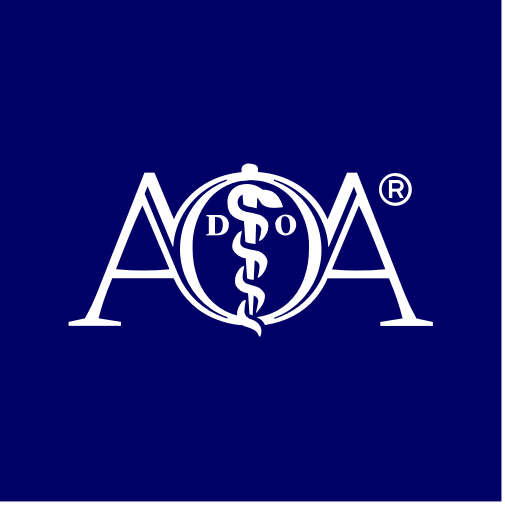
COURSE CREDITS & HOURS
16 AMA PRA Category 1 Credits™16 ACPE Credits
16.0 Contact Hours
7 Hours of Pharmacology for Nurse Practitioners
COURSE FEES
TARGET AUDIENCE
PROGRAM PURPOSE
Updates in Family Medicine
- Management of Fever in Infants and Children
- Identify the epidemiology of infections causing fever
- Discuss the diagnostic evaluation of fever depending on age, while minimizing the risk associated with invasive testing
- Explain the choice of empiric management and treatment
- Smoking Cessation Current Options
- Recognize the front line approach to prevention and treatment of tobacco use and nicotine dependence
- Summarize the behavioral and pharmacotherapy interventions to affect tobacco smoking cessation
- Discuss the current evidence for the use of electronic nicotine delivery systems for tobacco cessation in adults
- Locate two AAFP resources on smoking cessation available for practicing clinicians and patients
- Ask and Act: a program for tobacco cessation
- Tobacco and Nicotine Cessation Toolkit
- Choosing Wisely A Look at a National Dialogue About What Not to Do in Medicine.
- Locate the online presence of the Choosing Wisely Campaign
- Explain the genesis of the Choosing Wisely Campaign
- Summarize strategic statements published in the Choosing Wisely Campaign
- Recognize the practical aspects of using the Choosing Wisely Campaign® in educating patients about quaternary prevention
- Immunizations - The ACIP 2023 Update
- Outline 2023 changes to the ACIP recommended immunization schedules
- Advise patients with a history of an adverse event following immunization on the recommendation for reimmunization
- Develop strategies to address parental concerns and other barriers to immunization administration in children and adolescents
- Consider strategies to improve vaccination coverage among groups impacted by social disparities (i.e. social determinants of health)
- Sexually Transmitted Infection Guidelines The 2021 CDC Report
- Discuss the common clinical presentations for patients experiencing STIs
- Demonstrate the contemporary use of testing to diagnose STIs and treatment of STIs
- Review major infections with identification of appropriate therapy
- Anal Cancer - Screening, Detection, and Prevention
- Summarize the relationship of human papillomavirus infection to anal squamous cell carcinoma
- Outline a screening protocol for precancerous lesions high-grade anal intraepithelial neoplasia
- Discuss interventions to lower risk for anal cancer
- Transgender Health Care
- Define gender identity Outline steps to implement transgender sensitive care
- Point out areas of risk for patients undergoing hormone therapy and surgical treatment for gender confirmation.
- Identify state and facility laws governing the care of transgender patients including (but not limited to) legal decision-making and visitation
- HIV Screening and Prevention
- State the 2019 USPSTF recommendations on screening for HIV in the general populations.
- Outline the 2021 US Public Health Service clinical practice guidelines on pre-exposure prophylaxis for the prevention of HIV infection
- Summarize the 2016 guidelines for antiretroviral postexposure prophylaxis after high risk sexual encounter, injection drug use, or other non-occupational exposure to HIV.
- Develop a strategy for screening of patients for eligibility for pre-exposure prophylaxis to prevent HIV infection
- Why does menopause happen?
- Outline the process of menopause
- Describe the significance of menopause to all women
- Recognize the health issues that result from menopause
- State why menopause matters and why it should be treated
- Provide an overview of the numerous ways that progesterone and estrogen impact the organ systems of women
- Menopause and the immune system: An integrative approach
- Contrast the differences between men and women and their immune systems
- Outline the many roles of the immune system throughout the body
- Explain how estrogen modulates the immune system
- Identify the health outcomes relating to alterations within the immune system during and after the menopause transition
- Menopause and the cardiovascular system: An integrative approach
- Contrast the differences between men and women and their cardiovascular systems
- Outline the many roles played by estrogen throughout the cardiovascular system
- Explain how estrogen modulates the cardiovascular system via the mitochondria
- Detail how estrogen modulates the cardiovascular system via the immune system
- Identify the health outcomes relating to alterations within the immune system during and after the menopause transition
- Menopause and brain function: An integrative approach
- Cite the differences between the brains of men and women
- Summarize the roles of hormones on brain function
- Examine how estrogen modulates the immune system of the brain
- Contrast the reasons why women experience far more dementia and mood disorders than men
- Prepare a therapeutic approach to brain health
- Menopause and female sexuality: An integrative approach
- Outline the effects of menopause on female sexuality
- Describe the significance of estrogen to female sexuality
- Recognize the emotional impacts of sexual changes with menopause
- Detail the role of oxytocin and female sexuality
- Develop a therapeutic strategy to revitalize sexual enjoyment and response
- Menopause and skin and hair vitality: An integrative approach
- Detail the impact of hormones on skin and hair
- Outline the effects that menopause has on hair and skin health
- Explain how estrogen modulates skin and hair structures
- Develop a therapeutic strategy to maintain and restore healthy skin and hair
- Menopause and bone health: An integrative approach
- Outline the effects of menopause on female sexuality
- Describe the significance of estrogen to female sexuality
- Recognize the emotional impacts of sexual changes with menopause
- Detail the role of oxytocin and female sexuality
- Develop a therapeutic strategy to revitalize sexual enjoyment and response
- The Best Integrative Approach to Menopause: Including case studies and the ABCs of prescribing hormones
- Explain the benefits of time restricted eating and fasting for menopausal women
- Recognize the role of estrogen and the circadian rhythm and gut microbiome
- Detail the impact on dietary choices on the health of menopausal women
- Learn how targeted nutraceuticals can be utilized to improve patient lives
- Integrate the data learned into the care of actual patients
- Acquire the basics of prescribing hormones to your menopausal patients
- Develop a comprehensive lifestyle approach to optimizing the health of menopausal women

























































